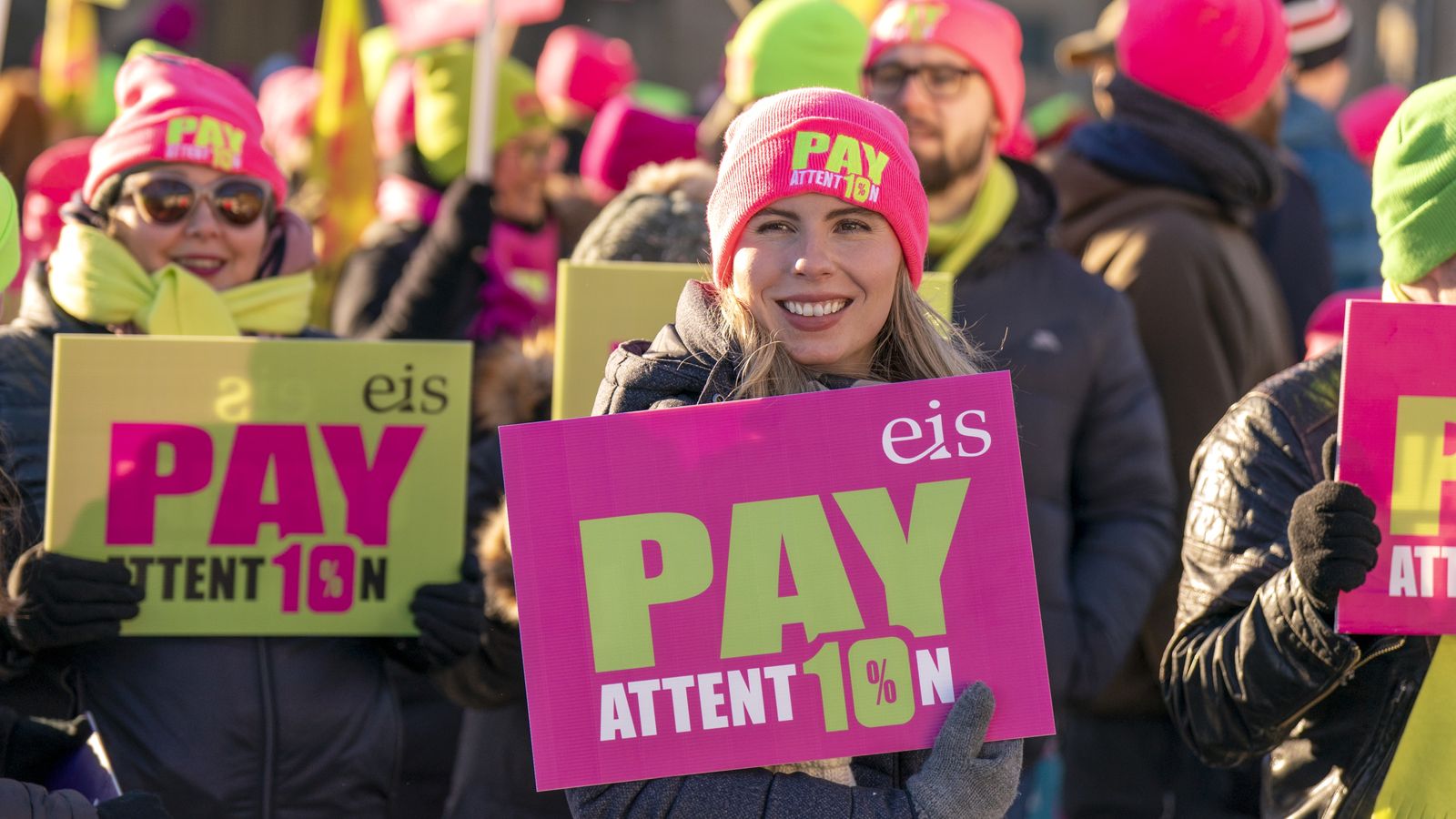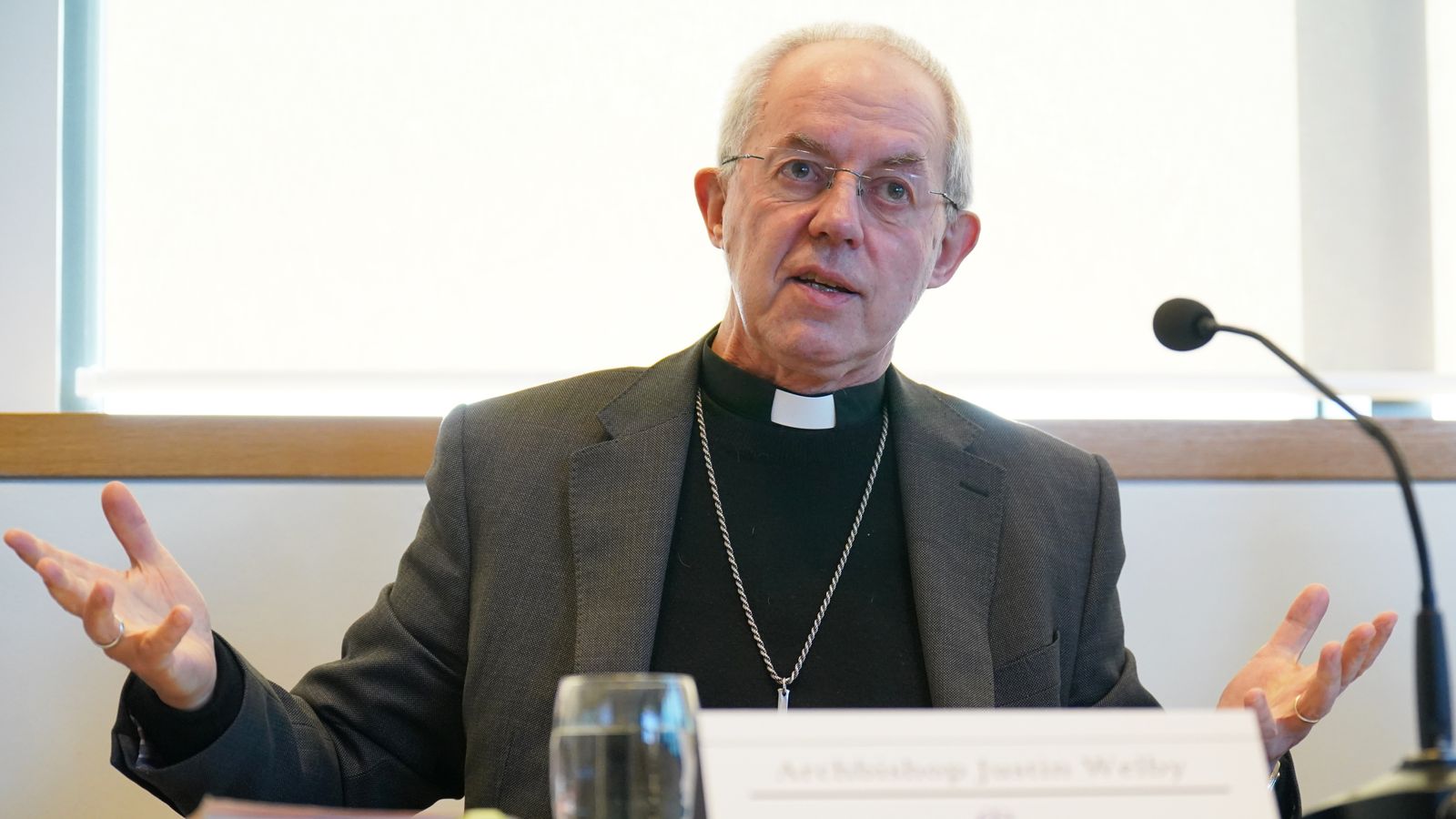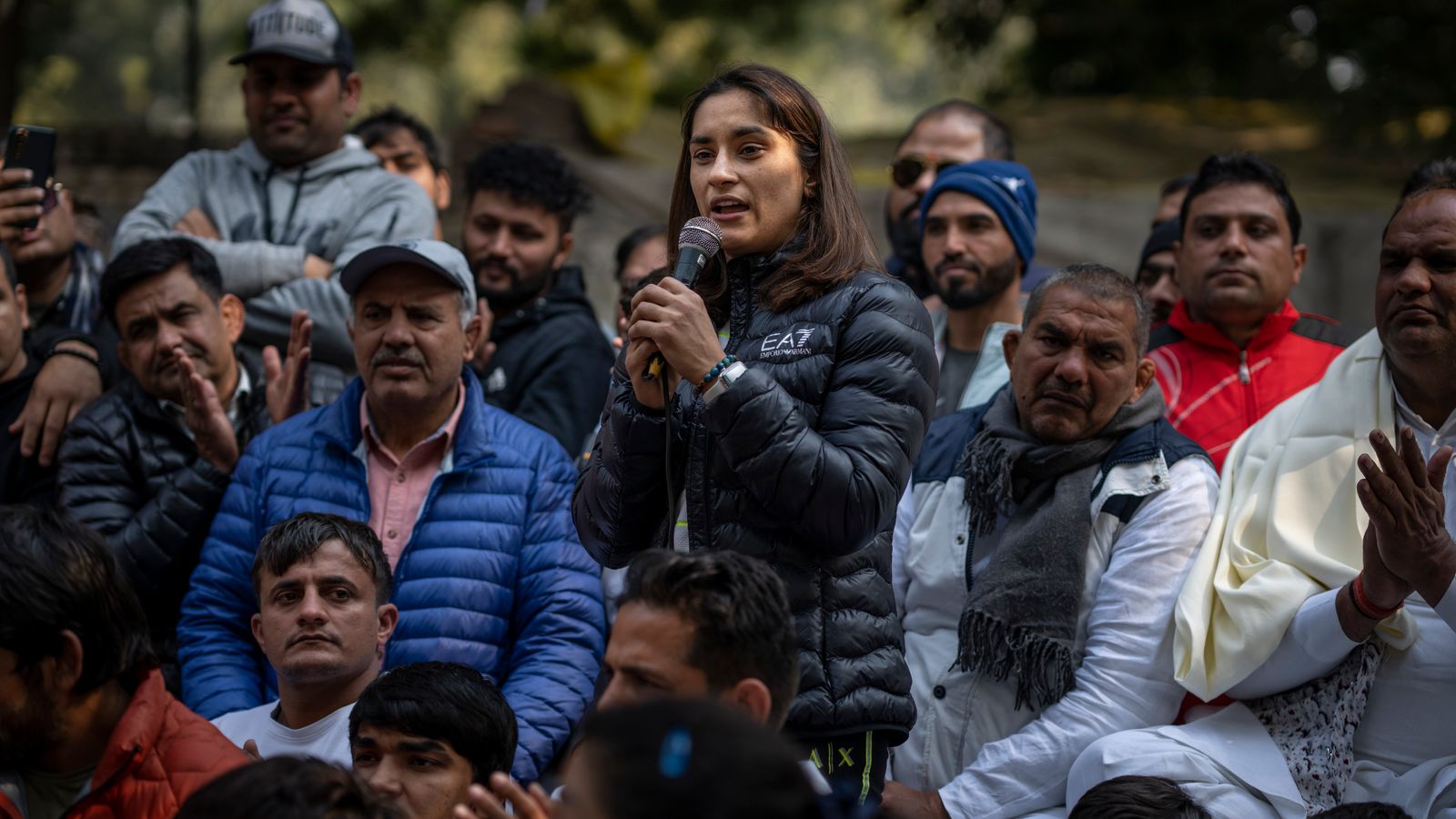Education unions are meeting government officials today for a marathon six-hour round of talks aimed at averting the upcoming teacher strikes.
The National Education Union (NEU) has declared seven days of walkouts in February and March, with more than 23,000 schools in England and Wales expected to be affected.
There was little sign of a breakthrough after discussions between Education Secretary Gillian Keegan and union leaders on Wednesday.
But the planned length of today’s talks were described as a “step forward” by Geoff Barton, general secretary of the Association of School and College Leaders (ASCL).
Politics live: Tory MP slams ‘politically motivated’ complaints about PM seatbelt video
ASCL have not been balloted to strike, but Mr Barton said there is anger among his members over a range of issues, including education funding and problems with recruitment and retention as well as pay.
He told Sky News: “In particular, we want to see teaching become a more high profile, high status profession.
Ambulance workers to stage 10 further strikes as row over pay and staffing escalates
Tory MP Simon Clarke defiant after saying nurses using food banks ‘should budget better’
NHS leaders making contingency plans as biggest walkout in its history looms
“Pay and conditions are part of that. I’m hoping that what we get from today is a sense of talking about those real and genuine issues rather than skirting around them, and not thinking that this is purely a post-COVID thing.
“This has been a decade in the making.”
On the length of today’s meeting, he said: “That’s a long time, I have to say, six hours of talks where pay is the number one issue on the agenda. That feels to me like it is a step forward.”
Evidence for next year’s pay review body is set to be discussed at the talks today, but Mr Barton said teachers are striking “because of the way they’re being paid now”.
He said there has been a reluctance in England to talk about pay compared with Wales, where there is a Labour government in power.
“I think what we got with the education secretary was someone who I think tribally sees unions as part of the problem and was reluctant to talk about what we think is the key issue, which is pay – how do you recruit great graduates to choose this profession?
“And what we saw, I think, in Wales, with the cabinet secretary, was somebody who opened by saying ‘this is the beginning of a negotiation around pay’.
“It was much more direct because of the social partnership between the government there.”
On Wednesday Ms Keegan criticised teachers for voting to go on strike, telling Sky News: “Our children don’t deserve it.”
Please use Chrome browser for a more accessible video player
Thousands of other public sector workers are striking over pay and conditions amid the worsening cost of living crisis – but the government has insisted it can’t afford their demands for inflation-busting pay rises.
Many economists have disputed claims by ministers that pay rises will lead to a wage-price spiral.
But education minister Nick Gibbs stood by this line on Friday, telling BBC Breakfast the government does not want to give “inflation-busting pay settlements that mean that we end up embedding inflation into our economy for the longer term”.
Read More:
Scotland continues rolling teacher strikes amid pay dispute
Fresh wave of strikes this year- who is taking action and when
Head teachers have warned that if the strikes go ahead, schools may have to close.
Updated guidance from the Department for Education suggests agency staff and volunteers could be used to provide cover in the classroom.
But the guidance has been called “at best naive” by the general secretary of the National Association of Head Teachers, who said schools could have to shut during walkouts if “staffing numbers are dangerously low”.











